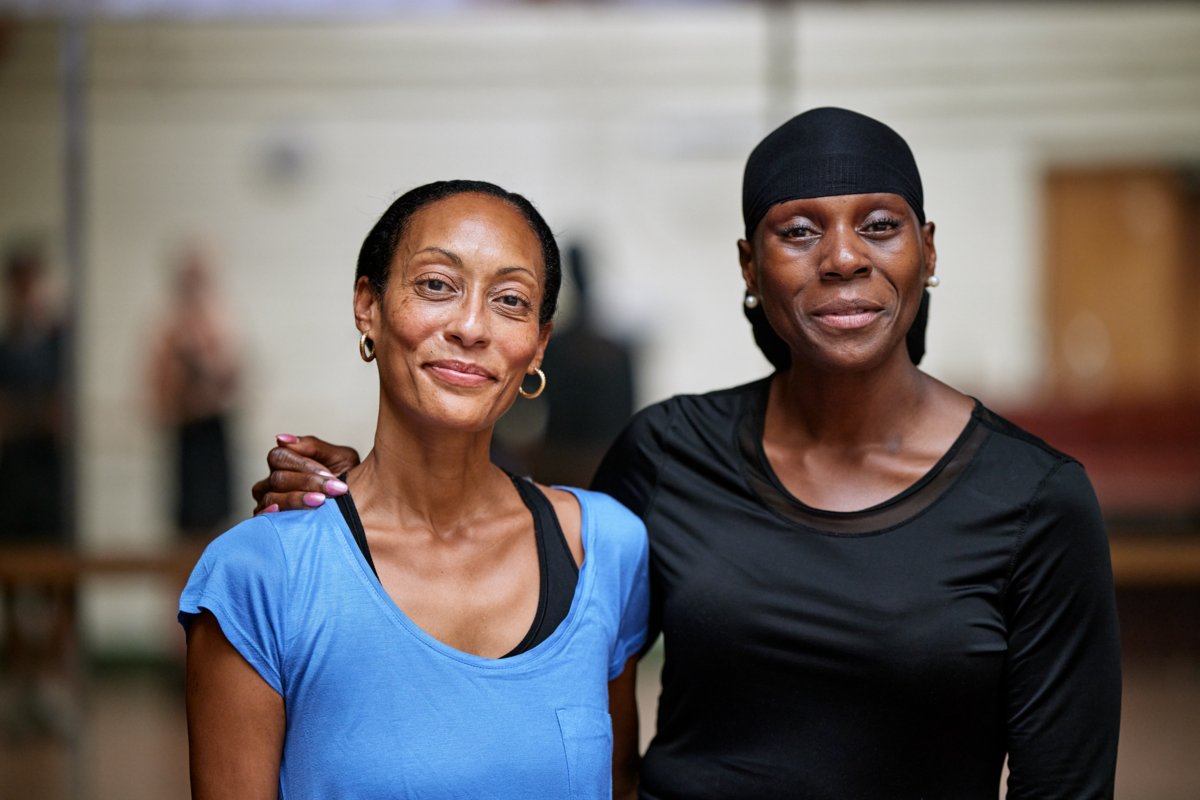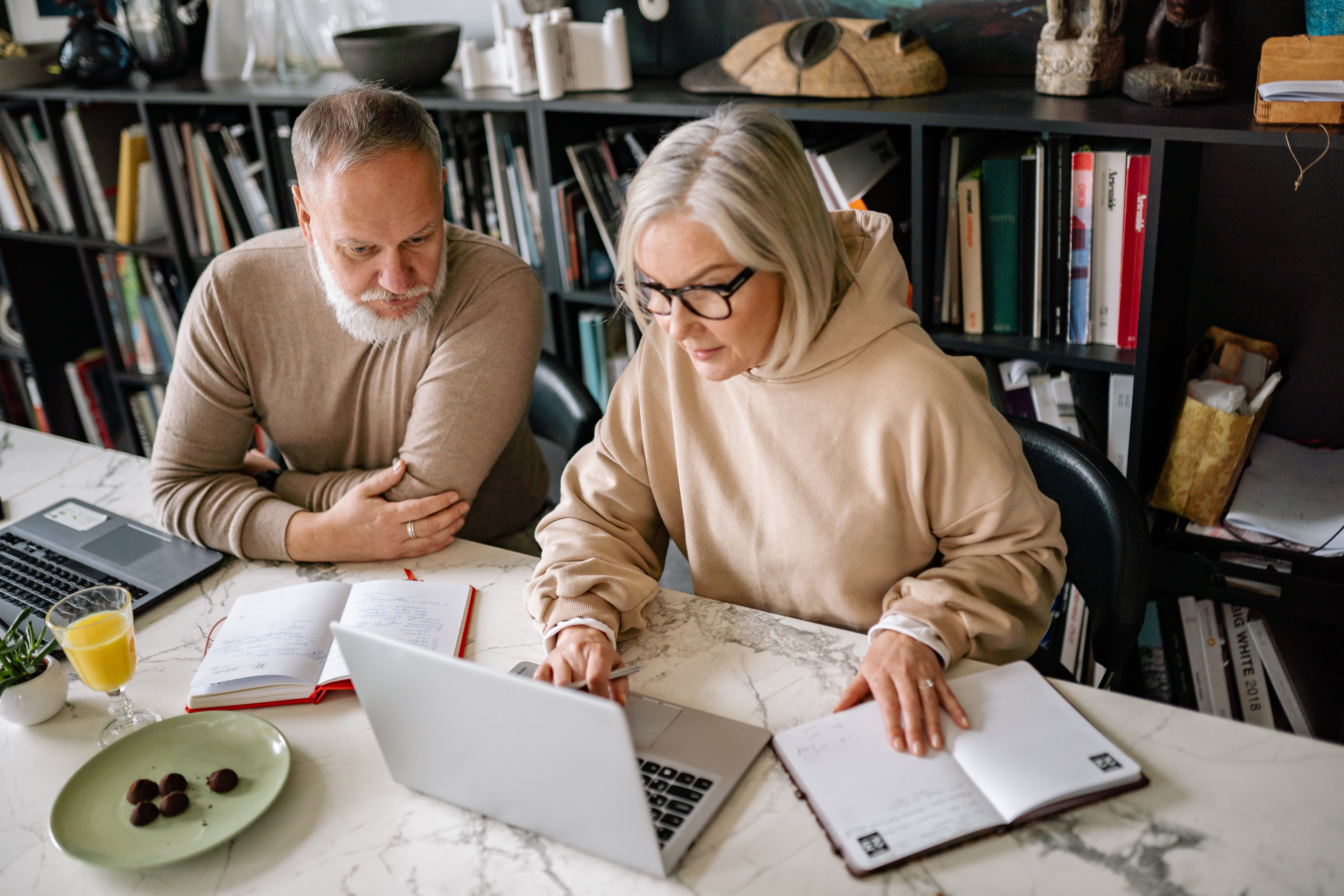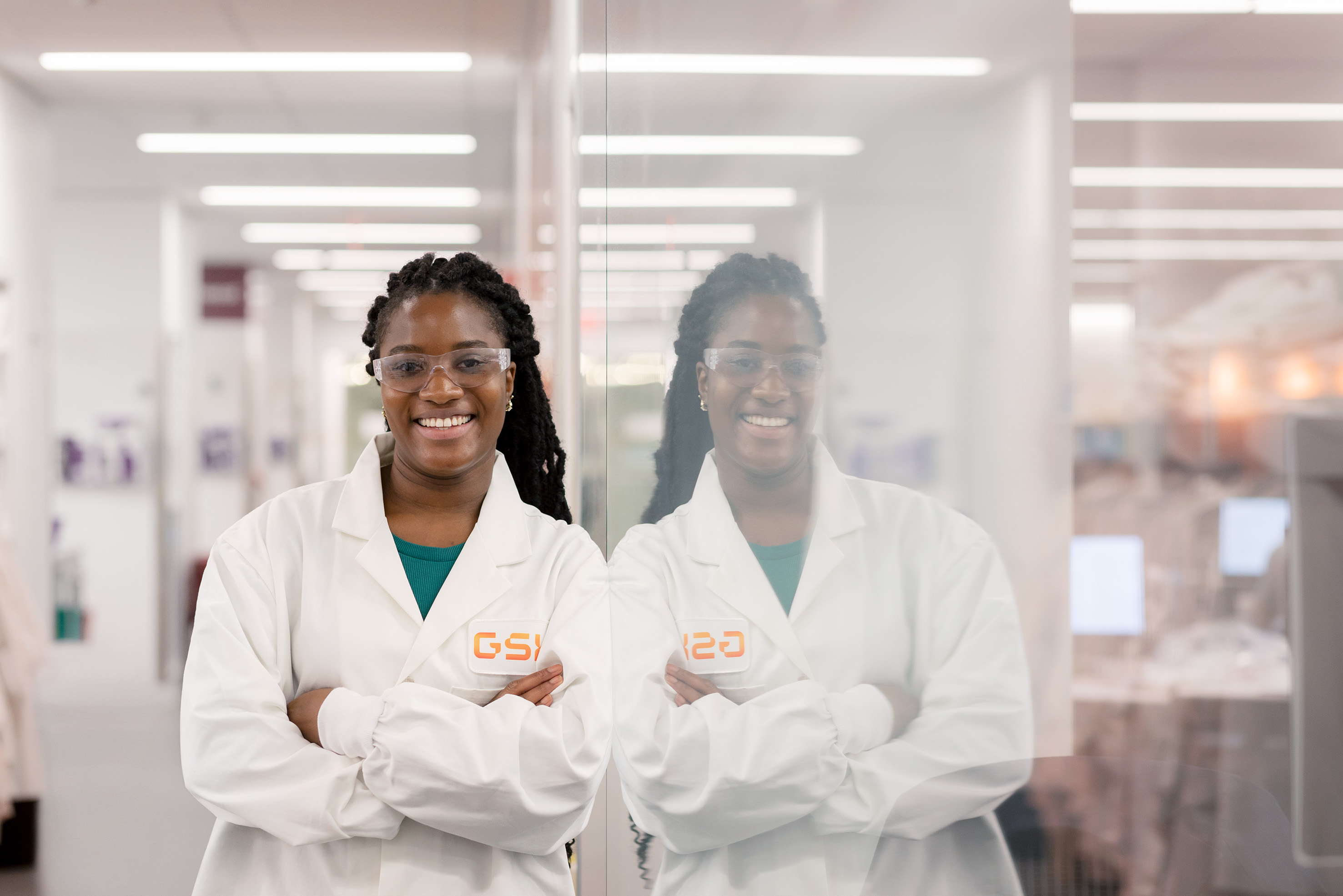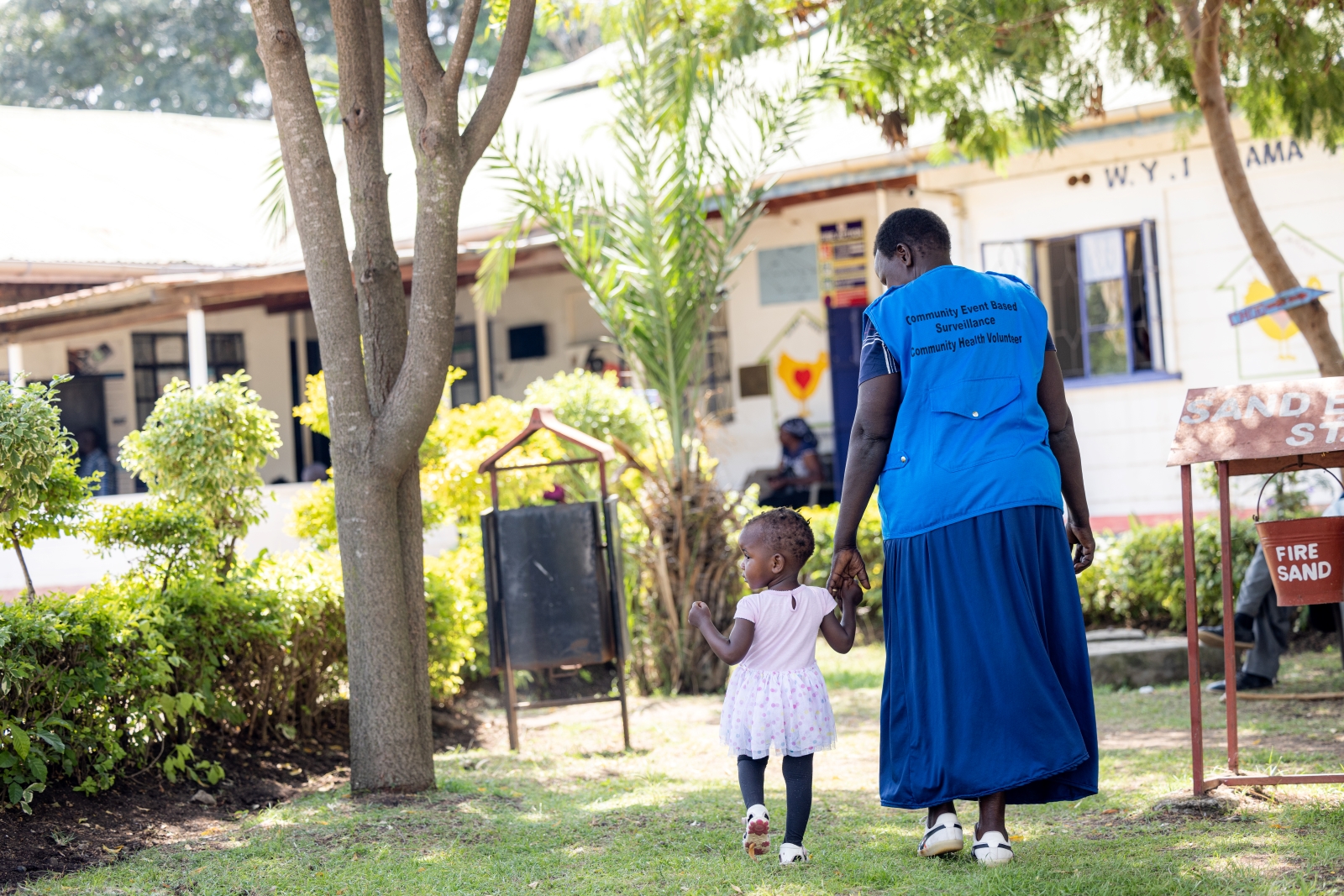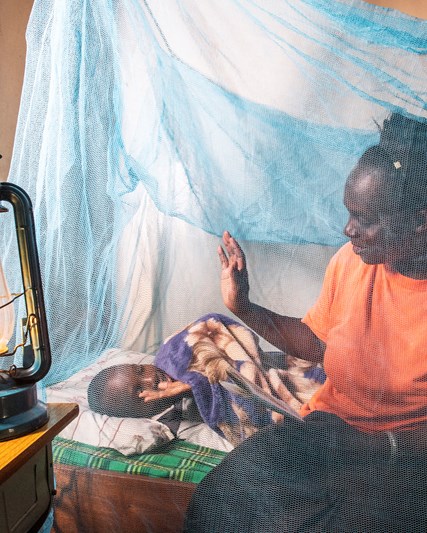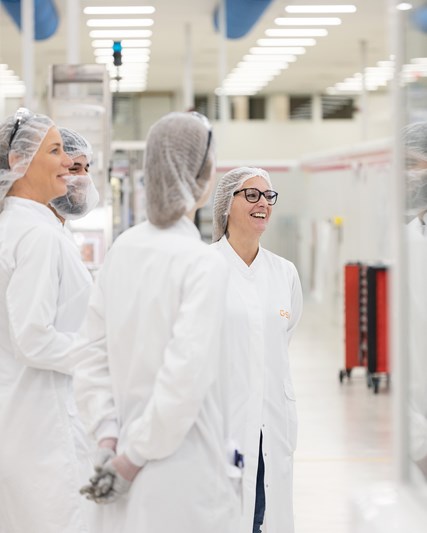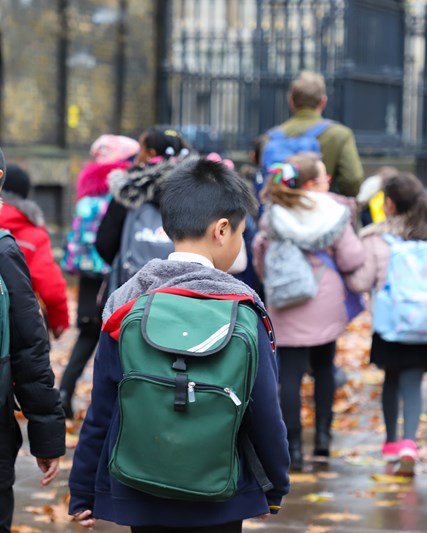All patients deserve access to high quality healthcare, yet the needs of many go unmet due to preventable factors. This is how healthcare companies, like GSK, are working with partners and communities to close health equity gaps that exist within countries and between them – and why doing so benefits all of us.
Everyone should have access to the medicines and vaccines they need to achieve optimal health regardless of who they are or where they come from.
This is the basis for ‘health equity’ – a term the World Health Organisation describes as “the absence of unfair, avoidable or remediable differences among groups of people, whether those groups are defined socially, economically, demographically, or geographically or by other dimensions of inequality (for example, by sex, gender, ethnicity, disability, or sexual orientation).”
However, the world is far from perfect, and a health equity gap exists between those who can access healthcare, and those who remain underserved. This gap not only stops many patients from getting the treatment they need, but also places huge financial burden on healthcare services and economies.
In the US, health inequities account for approximately $320 billion in annual healthcare spending for the treatment of preventable diseases and complications that arise from them. If unaddressed, this figure could grow to $1 trillion or more by 2040.
Globally, health inequities are already hitting lower income countries hard. In 2015, loss of productivity due to preventable disease cost the African region $2.5trillion. Health inequities are also the reason a 30 year life expectancy gap exists between populations in Japan and Lethoso, according to the World Bank.
“The continual process of advancing health equity requires intentional action to address social determinants of health and reduce health disparities which benefits everyone,” says Dr Dolly White, program official at the National Institute on Minority Health and Health Disparities (NIMHD) in the US.
Global biopharma companies, like GSK, are helping find solutions to health disparities by investing in collaborative programs that help to understand and eliminate barriers. This includes generating better data to work out why certain groups remain underserved; bringing previously excluded patient communities into access planning; and partnering with others to ensure scalable access to medication in lower income countries.
“For us, it is both a strategic and a moral imperative,” says Temi Folaranmi, VP of US Medical and Clinical Affairs, Vaccines for GSK.
“From a moral imperative point of view, it is ethically important that healthcare resources are distributed fairly.
“It’s also important strategically because by protecting a vulnerable population we reduce general disease in society.”
Crucial collaborations
Health equity isn't a challenge that can be solved by one organisation, and there isn't a one-size-fits-all approach.
Teaming up with expert data, technology, and healthcare organisations is key to closing the health equity gap. Doing so ensures greater access to transparent data that could explain why certain groups remain underserved in their communities – and highlight opportunities to prioritise access.
Vaccine Track is one of many initiatives GSK is pioneering to strengthen vaccination data transparency and raise awareness.
Developed in collaboration with IQVIA – a global data and tech company – this first-of-its-kind resource provides frequent and relevant data to public health bodies, local governments and other decisionmakers on trends to focus and enhance public health initiatives.
“Vaccines not only protect individuals who receive them, but they also protect and contribute to the good health of society,” Dr Folaranmi continues.
“The opportunity to prioritise vaccine access in vulnerable populations allows us to protect them and reduce the overall burden of disease. It allows us to reduce healthcare costs, including hospitalisation. It reduces the risk of having a sicker population - and provides us with a healthier workforce as well.”
Vaccination rate data from IQVIA showed that Black and Hispanic people were less likely to receive a vaccine for certain diseases – and research conducted by GSK highlighted that Hispanic people were also less familiar with symptoms and risk factors.
In response to these findings, the company launched a dedicated strategy to reduce immunisation disparities. This included a Spanish-language disease awareness campaign that ran on popular Spanish-language channels using Hispanic actors and culturally appropriate scenarios. Healthcare providers were also targeted to drive awareness of the disparities and encourage them to address barriers to access within their patient populations.
WATCH GSK MEDICAL SCIENCE LIAISON CYNTHIA'S STORY:
Following the campaign, vaccination rates for Black patients in the US grew by 33%, while rates for Hispanic patients grew by 38%. This outpaced growth of uptake by White patients, which grew by just 22% during the same time frame.
Connecting with communities
Engaging with groups that are disproportionately impacted by disease but face barriers to healthcare access can be achieved by connecting with community groups and public health professionals. By doing so, organisations gain unique insight into the lived experiences of underserved people and find more effective solutions.
“Best practices to reach populations that experience health disparities include fostering innovative collaborations and partnerships with communities and populations to develop tailored approaches and recruiting a diverse healthcare workforce that practices cultural humility,” says NIMHD’s Dr White.
In the US, Black women and Black transgender women are disproportionately impacted by HIV, accounting for nearly 60% of new infections. Yet uptake of preventative medicine has been low in this demographic.
In 2022, GSK’s HIV company ViiV Healthcare launched the EBONI study, a first of its kind clinical trial protocol to identify and evaluate strategies to increase awareness and access to preventative medicine.
To achieve this, ViiV worked with local women’s healthcare providers to gain input on potential implementation strategies. Crucially, they also engaged with Black women in the community, who provided invaluable information on how to reach those most affected.
“The EBONI study is a prime example of the importance of connecting with communities most impacted by a disease in order to truly understand what the barriers to accessing this type of healthcare are for them,” says Harmony Garges, Chief Medical Officer of ViiV Healthcare.
“When we can fully comprehend the barriers that are stopping people from being able to protect themselves, we can work with public health providers and take action to remove them.”
Global partnerships
Where health inequities exist between countries, partnering with organisations with specialist knowledge is essential to making progress
ViiV Healthcare has a long-standing partnership with the United Nations-backed Medicines Patent Pool (MPP), which works with key healthcare decision makers and generic manufacturers to prioritise and license needed treatments so that they can be developed, manufactured and supplied to low-and middle-income countries. The company also works directly with Aurobindo Pharma, an Indian manufacturer of branded and generic medicines.
Thanks to these collaborations, around 24 million people living with HIV across 128 countries had access to a ViiV-innovated, WHO-preferred treatment by the end of 2023. This is more than 90% of people living with HIV on antiretrovirals in low-and-middle-income countries.
“We believe that everyone should have access to HIV medicines, irrespective of where they are in the world,” says Helen McDowell, Head of Government Affairs and Global Public Health for ViiV Healthcare.
“If we are to end the HIV epidemic, it is crucial that we continue to come together as a community.”
Since 2010, GSK has partnered with Gavi, the Vaccine Alliance, to provide more than 1 billion vaccine doses to children in lower income countries. This collaboration laid the foundations for Gavi, WHO, and UNICEF to roll out GSK’s world first malaria vaccine to a number of endemic countries, with the first doses shipped to Cameroon in November 2023.
The biopharma also maintains a long-standing alliance with Save the Children, combining skills, expertise and resources to find new ways to reduce preventable child deaths. To date more than 3.5 million children have been reached across 51 countries, including the immunisation of 240,000 children under five against key preventable diseases.
“Medicines and vaccines are only impactful when they're accessible to those who need them,” says GSK’s Chief Global Health Officer, Thomas Breuer.
“As a global biopharma company, we have an important role to play in partnering with all parts of the health ecosystem to increase access to our medicines and vaccines, and ultimately, help impact the health of people all around the world.”
